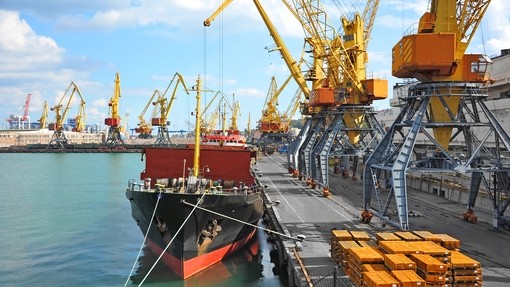Sanctions Clauses - the devil’s in the detail

Sanctions Clauses - the devil’s in the detail
Introduction
Irrevocable payment undertakings have been described as ‘the life-blood of international commerce’.1 This oft-quoted statement has gained significant importance in recent years owing to the various sanctions regimes at domestic, EU, and international levels. Sanctions clauses are now frequently included in trade finance instruments, such as letters of credit, to allow banks to refuse making payment if it would violate applicable sanctions.
In the recent decision of Kuvera Resources Pte Ltd v JPMorgan Chase Bank, N.A. [2023] SGCA 28, the Singapore Court of Appeal (the ‘CA’) overturned the decision of the General Division of the High Court of Singapore in Kuvera Resources Pte Ltd v JPMorgan Chase Bank, N.A. [2022] SGHC 213 (the ‘HC Judgment’). The CA found that JPMorgan Chase Bank, N.A. (the ‘JP Morgan’) was not entitled to rely on the sanctions clause to deny payment to Kuvera Resources Pte Ltd (‘Kuvera’) upon a complying presentation of documents. The CA also reaffirmed the underlying nature of documentary credits and confirmations.
Material facts
Kuvera had advanced funds to a seller to facilitate the latter’s purchase of coal for on-selling to its buyer. The buyer was to pay for the coal by issuing two letters of credits (‘LCs’) in favour of Kuvera as beneficiary. JP Morgan was requested and agreed to act as the advising and nominated bank for the LCs. JP Morgan duly advised both LCs and added its confirmation to the LCs (the ‘Confirmations’), thereby also making it the confirming bank for the LCs.
The Confirmations contained a sanctions clause (the ‘Sanctions Clause’) which provided that:
[JP Morgan] must comply with all sanctions, embargo and other laws and regulations of the U.S. and of other applicable jurisdictions to the extent they do not conflict with such U.S. laws and regulations (‘applicable restrictions’). Should documents be presented involving any country, entity, vessel or individual listed in or otherwise subject to any application restriction, we shall not be liable for any delay or failure to pay, process or return such documents or for any related disclosure of information.’
Kuvera subsequently made a presentation of documents to JP Morgan for payment under the LCs. It was undisputed that Kuvera had made a complying presentation. However, pursuant to its internal sanctions screening procedure, JP Morgan discovered that the vessel (the “Omnia”) carrying the coal was included on its internal list (known as the Master List) of entities and vessels that JP Morgan determined was likely to be beneficially owned by a Syrian entity and, therefore, fell within the scope of the US Office of Foreign Assets Control (‘OFAC) sanctions imposed on Syria. Accordingly, JP Morgan informed Kuvera that it could not accommodate Kuvera’s presentation of the documents as the transaction did not comply with applicable US sanctions laws and/or its internal policies designed to ensure compliance with such laws.
Kuvera commenced proceedings in Singapore for breach of contract to recover the monies owed under the LCs.
High Court Decision
The High Court dismissed Kuvera’s claim and agreed with JP Morgan’s submissions that the Sanctions Clause entitled JP Morgan to refuse payment to Kuvera. The key findings of the High Court were as follows:
- Letters of credit and confirmations were separate and autonomous unilateral contracts with one sui generis exception, namely, that an issuing or confirming bank has a contractual obligation to the beneficiary not to revoke its offer for which no consideration has to be provided. This means that a beneficiary under a confirmed letter of credit has a contractual right either to seek payment from the issuing bank under the letter of credit or from the confirming bank under the confirmation.
- Accordingly, JP Morgan was at liberty to include the Sanctions Clause, which was sufficient brought to Kuvera’s attention, as a term of its Confirmations even though that was not found in the LCs itself.
- The Sanctions Clause was valid and enforceable. It was not a non-documentary condition, and it was not fundamentally inconsistent with the commercial purpose of a confirmation, i.e., to give the beneficiary an alternative avenue to receive payment other than from the issuing bank.
- The Sanctions Clause was sufficiently narrow and did not confer on JP Morgan a broad discretion so as to render the Confirmations de facto revocable. This was notwithstanding that the Sanctions Clause allowed JP Morgan to rely on its internal sanctions policy as its internal policy did not go beyond the content of US sanctions laws and regulations.
- The Sanctions Clause entitled JP Morgan to refuse payment to Kuvera because JP Morgan, as the Singapore branch of a US-incorporated and regulated bank, was subject to and obliged to comply with US sanctions laws and regulations. Based on the evidence adduced by JP Morgan, it would have been exposed to a penalty by OFAC for breaching those laws and regulations had JP Morgan paid Kuvera against its complying presentation. This was sufficient to avail JP Morgan of the Sanctions Clause.
The Court of Appeal’s Decision
The Singapore Court of Appeal started off with a helpful analysis of the nature of documentary credit transactions. In endorsing the High Court judge (the ‘Judge’)’s views on the nature of documentary credits, the Court of Appeal held that:
- a documentary credit transaction comprises multiple discrete contracts each of which are autonomous and separate from, and operate independently of, the others.
- given the autonomous and independent nature of a confirmation, a confirming bank’s liability under a confirmation may be subject to conditions that are not present in a letter of credit.
- the LCs and Confirmations were unilateral contracts bearing a sui generis quality of irrevocability.
- the Sanctions Clause was validly incorporated in the Confirmations.
The Court of Appeal then had to consider three issues:
- What was the true effect and meaning of the Sanctions Clause?
- Was the Sanctions Clause fundamentally inconsistent with the commercial purpose of the Confirmations?
- Given its true effect and meaning, did JP Morgan discharge its burden of proof in order to rely on the Sanctions Clause?
Dealing with the first and third issues together, the Court of Appeal disagreed with the Judge’s findings that the Sanctions Clause had the effect of allowing JP Morgan to adopt a risk-based approach in circumstances where there was an unresolved possibility that the Omnia may be caught under “any application restriction” in refusing to pay against a complying presentation and risk facing a claim from Kuvera, rather than paying against a complying presentation and risk being in breach of US sanctions. The Court of Appeal held that this was not permitted by the text of the Sanctions Clause, the effect of which must be construed strictly.
The Court of Appeal also found that the Judge was wrong to adopt JP Morgan’s approach that it was not necessary to prove that the Omnia was in fact beneficially owned by an entity subject to sanctions and it would suffice for JP Morgan to establish that it would have been found by OFAC to be in breach of the sanctions had it paid against a complying presentation.
Instead, the Court of Appeal held that the Sanctions Clause, as with any other contractual term, must be construed objectively by reference to the text of the clause itself. On its terms, the Sanctions Clause would only apply if the Omnia was “listed in or otherwise subject to any applicable restriction”. As it was undisputed that the Omnia was not “listed in” any applicable restrictions (which, in this case, could only have been the OFAC Specially Designated Nationals and Blocked Persons list), the question was whether the Omnia was “otherwise subject to any applicable restriction”. This question, which was directed at the ownership of the Omnia, must necessarily be determined on an objective basis without any input from third-party entities.
As the party relying on the Sanctions Clause, the Court of Appeal held that the burden was on JP Morgan to prove, on a balance of probabilities, that the Omnia was in fact “subject to any application restriction”.
In overturning the HC Judgment, the Court of Appeal found that JP Morgan did not adduce sufficient evidence to discharge its burden of proving that the Omnia remained under Syrian beneficial ownership notwithstanding her change of name and registered ownership to a non-Syrian entity. In this regard, the Court of Appeal was particularly critical of JP Morgan’s reliance on its exchanges with OFAC, who was not bound by the rules of evidence, to help justify its decision to reject Kuvera’s complying presentation. The Court of Appeal also disagreed with the Judge’s findings that JP Morgan’s detection of several ‘red flags’ surrounding the ownership of the Omnia through its due diligence checks constituted sufficient circumstantial evidence to discharge its burden of proof. This was not least because JP Morgan itself acknowledged that those ‘red flags’ were ‘inconclusive’ to establishing the Omnia’s continued Syrian beneficial ownership.
In the light of the “inconclusive” evidence of the Omnia’s continued Syrian beneficial ownership, the Court of Appeal held that JP Morgan failed to discharge its burden of proof was accordingly not entitled to invoke the Sanctions Clause to deny payment to Kuvera against its complying presentation.
Given the Court of Appeal’s decision, it left open the ‘difficult’ issue as to whether the Sanctions Clause was compatible with the commercial purpose of the Confirmations. While the Court of Appeal noted that a balance must be struck between preserving the autonomy of individual contracts within a documentary credit transaction and upholding the commercial viability of the entire documentary credit transaction, it was provisionally of the view that were JP Morgan’s construction of the Sanctions Clause to be adopted, the Sanctions Clause would most likely be incompatible with the commercial purpose of the Confirmations due to the significant unpredictability it would introduce to the Confirmations.
Commentary
Given the current geopolitical climate, sanctions clauses are increasingly commonplace in documentary credits and other trade finance-related documents. The Court of Appeal’s decision is therefore a much-needed addition to the limited jurisprudence in this area as it provides a useful guidance to the interpretation and treatment of sanctions clauses in documentary credits. However, the Court of Appeal’s decision to leave open the issue of the compatibility of sanctions clauses in documentary credits was an unfortunate, albeit understandable, one as it would have added some much-needed clarification to this scant area of law.
The decision confirms that sanctions clauses can be incorporated into confirmed documentary credits. It also confirms the importance of drafting sanctions clauses with utmost clarity and specificity, as the effect of such clauses will be determined objectively by reference to the text itself without any input from third-party entities. The decision also brings to light the potential pitfalls of relying on insufficient evidence (based on limited due diligence checks and/or internal policies) as the reason to refuse payment against a compliant presentation.
While it remains to be seen how the Singapore courts (and other common law jurisdictions) might determine whether sanctions clauses are generally compatible with the commercial purpose of confirmed/irrevocable documentary credits, much will invariably turn on the wording and effect of the particular sanctions clause in question. There is no reason why a sanctions clause should not be enforceable if it does not fundamentally alter or defeat the commercial purpose of a confirmed/irrevocable documentary credit. As they say, the devil’s in the detail.
Trade finance banks and other relevant participants who operate in multiple jurisdictions and may be subject to various sanctions regimes should ensure that sufficient and thorough due diligence checks are carried out on all material aspects of the transaction, and that sufficient care is exercised when incorporating and/or drafting sanctions clauses in confirmed/irrevocable documentary credits.
[1] RD Harbottle (Mercantile) Ltd v National Westminster Bank [1978] QB 146, 155-156 (per Kerr J).
For further information and support from our commodities team, please get in touch






